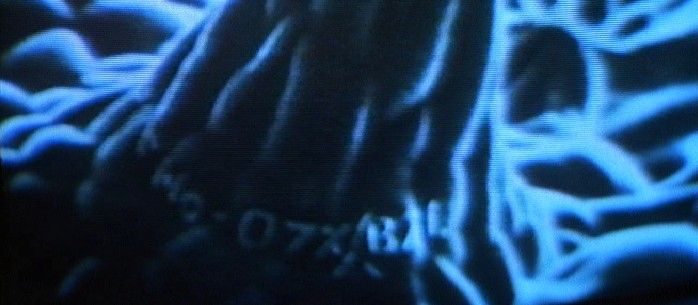Making Life in a Lab
February 10, 2005 7:31 AM Subscribe
mcgraw: These simple cells do not have DNA, so how could they have a genetic barcode?
Otherwise, intresting fist link.
posted by delmoi at 7:54 AM on February 10, 2005
Otherwise, intresting fist link.
posted by delmoi at 7:54 AM on February 10, 2005
Ah, what a great time to be a biochemist. I've heard about the Harvard group before but not about the barcode project. It's interesting that they've chosen a mitochondrial gene as their target sincemitochondria were once free-living organisms and have their own set of DNA distinct from an organism's genomic DNA. I think I'll keep an eye on this project.
This is one of the coolest posts I've seen in a while! :)
posted by LunaticFringe at 8:00 AM on February 10, 2005
This is one of the coolest posts I've seen in a while! :)
posted by LunaticFringe at 8:00 AM on February 10, 2005
Sticker, stickler.
(just kidding, delmoi. good point.)
posted by mcgraw at 8:07 AM on February 10, 2005
(just kidding, delmoi. good point.)
posted by mcgraw at 8:07 AM on February 10, 2005
mcgraw: These simple cells do not have DNA, so how could they have a genetic barcode?
But the simple cells do have DNA...that's the point of the article. Nucleic acids are DNA and RNA. This group is suggesting that liposomes containing self-replicating nucleic acids will expand and steal lipids from the liposomes that don't contain nucleic acids.
You're right about the barcode part though. The simple cells do not have mitochondrial DNA, and so won't have a barcode but that wasn't the point of the first article.
posted by LunaticFringe at 8:14 AM on February 10, 2005
But the simple cells do have DNA...that's the point of the article. Nucleic acids are DNA and RNA. This group is suggesting that liposomes containing self-replicating nucleic acids will expand and steal lipids from the liposomes that don't contain nucleic acids.
You're right about the barcode part though. The simple cells do not have mitochondrial DNA, and so won't have a barcode but that wasn't the point of the first article.
posted by LunaticFringe at 8:14 AM on February 10, 2005
This applies to more than lab creations.
You don't suppose Google is on to this?
posted by weapons-grade pandemonium at 9:44 AM on February 10, 2005
You don't suppose Google is on to this?
posted by weapons-grade pandemonium at 9:44 AM on February 10, 2005
“What we showed was that you can get a Darwinian competition to emerge just from the basic physical properties of the system,” says Irene Chen, a graduate student in Szostak’s lab. “It doesn’t require biological machinery.”
*runs to talk.origins and/or iidb to watch for fireworks*
posted by gramschmidt at 9:48 AM on February 10, 2005
*runs to talk.origins and/or iidb to watch for fireworks*
posted by gramschmidt at 9:48 AM on February 10, 2005
Still waiting for a registration-based link, mcgraw.
posted by AlexReynolds at 2:28 PM on February 10, 2005
posted by AlexReynolds at 2:28 PM on February 10, 2005
Sure, that's fine, but it was a little cooler when they actually wrote the barcodes in.
posted by rxrfrx at 3:42 PM on February 10, 2005
posted by rxrfrx at 3:42 PM on February 10, 2005
*taps foot, waiting patiently*
posted by AlexReynolds at 4:24 PM on February 10, 2005
posted by AlexReynolds at 4:24 PM on February 10, 2005
OK, here's the frustrating registration-based link of the week. I'd like to read this article about the universe verse verse:

posted by mcgraw at 5:46 PM on February 10, 2005

posted by mcgraw at 5:46 PM on February 10, 2005
« Older SS Trust Fund | What kind of dining room set *defines* me as a... Newer »
This thread has been archived and is closed to new comments

posted by sourwookie at 7:48 AM on February 10, 2005